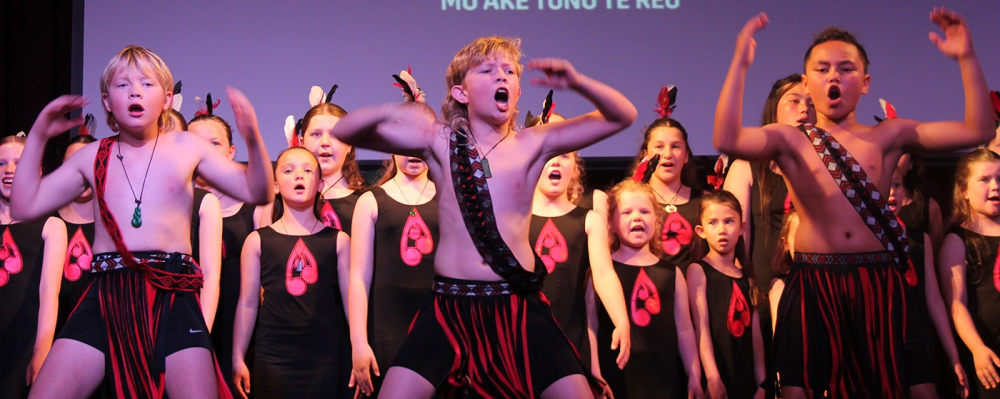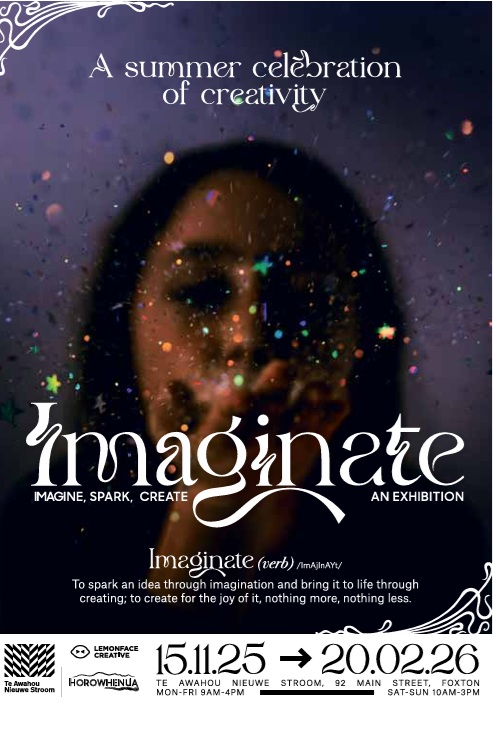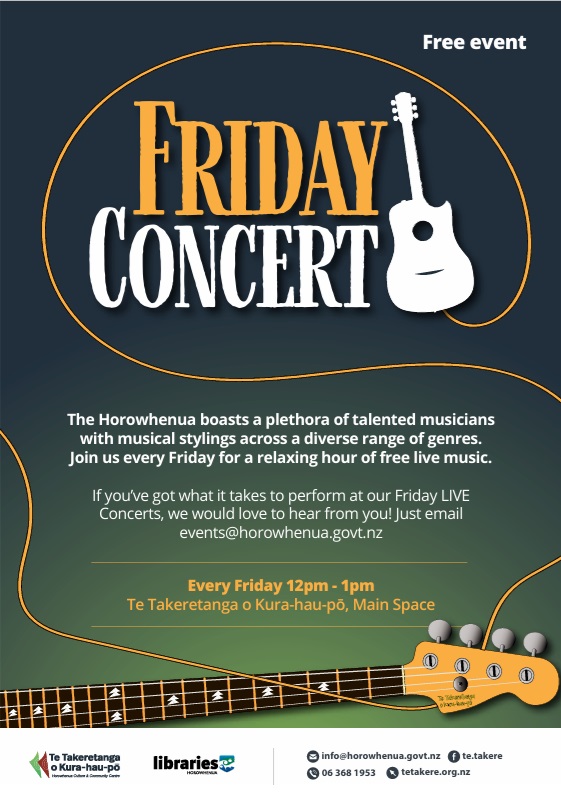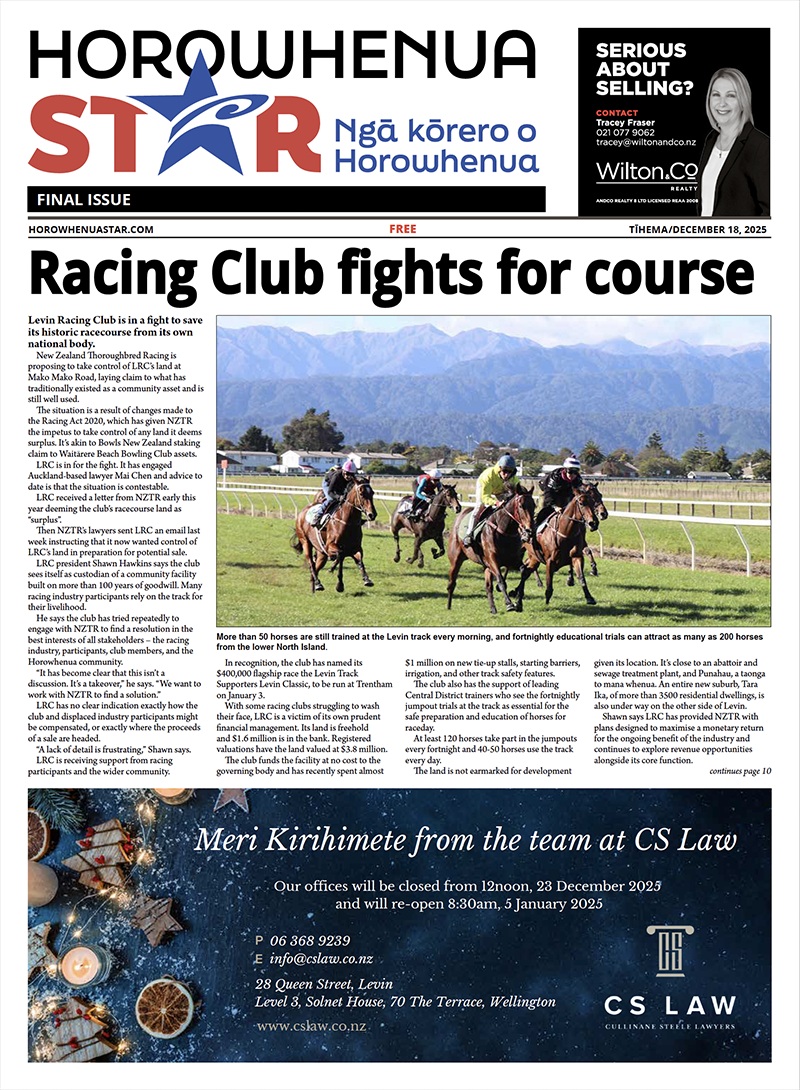
An annual kapa haka school festival in Horowhenua has exploded in popularity with record numbers of performers participating this year.
More than 500 students representing 21 different school and kura groups in the rohe took the stage for what has become a major annual event.
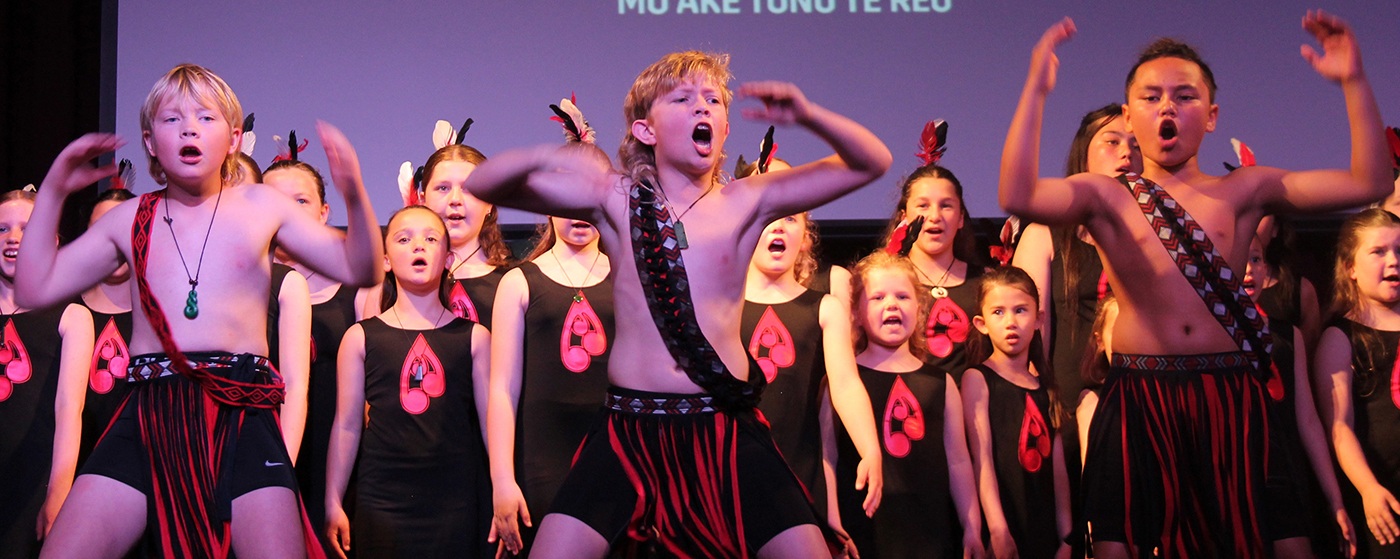
KAPA HAKA: From left, Alex Woodmass, Loch Green and Harrison Davis perform with the Koputaroa School kapa haka group at the annual Te Ahurei o Horowhenua Kapa Haka Festival this week at Waiopehu College. Photo Paul Williams
Te Ahurei o Horowenua Kapa Haka Festival was started in 2010 by local teacher Dylan Kiriona, but has steadily grown in size and stature. These days the event is organised by Muaūpoko Tribal Authority in collaboration with Horowhenua District Council, represented by tima hua ahurea Aroha Pakau and Ricky Heihei.
Aroha says it’s no coincidence that an annual Te Ahurei o Horowhenua Kapa Haka Festival is held the same week as the 50th anniversary of Te Wiki o Te Reo Māori this year.
“It’s great to be able to celebrate our reo with kapa haka – Māoritanga,” she says.
Organisers did a fine job handling the logistics of a large audience as seats at the Waiopehu College auditorium were limited to 300, with an estimated 1500 people wanting to watch.
Each performing group worked to a strict timetable, with their supporters ushered in and out accordingly. A video link was live-streamed on a screen set up outside the auditorium, and to Te Hau Aroha kaumātua space.
Aroha says the festival has purposely remained non-competitive so it remains a celebration rather than a competition, the kaupapa to showcase local talent.
She says organising the festival, which involves a range from kura-aged children to a kaumātua performance, is extremely rewarding.
“The biggest reward is when you see the proud faces of whānau watching the performances,” she says.
The largest contingent to take the stage came from Levin East School, who had 90 performers.
The festival had toyed with dates in term 4 in the past and had also coincided with Matariki for some years, but the winter date often proved cold for the youngest of performers waiting to take the stage and the later date often clashed with exams.
It now looks like it has a permanent home during Te Wiki o Te Reo Māori.
Dylan says it initially started as a way for a small number of schools with kapa haka groups to celebrate what they were doing and aspire to reach a level where they could perform.
Twelve schools were involved in the first festival and he says it’s great to see the festival growing: “The growth of culture and language and stories is empowering.
“It’s awesome to see the younger kids looking up to the intermediate-aged kids, and those kids aspiring to the college performances.”
Schools were now dressing their teams in kākahu and some were even setting their sights on national competitions.
Meanwhile, the growth in popularity of the festival also runs parallel with latest census figures showing an increase in the amount of te reo competency in Horowhenua.
According to the 2023 census, 213,849 of people nationwide – 4.3 percent of the population – say they can hold a conversation in Māori, an increase of 15 percent compared to the 2018 census. In Horowhenua, the figures suggesting te reo confidence was much higher at 5.8 percent, up significantly from previous census figures.
OTHER STORIES

